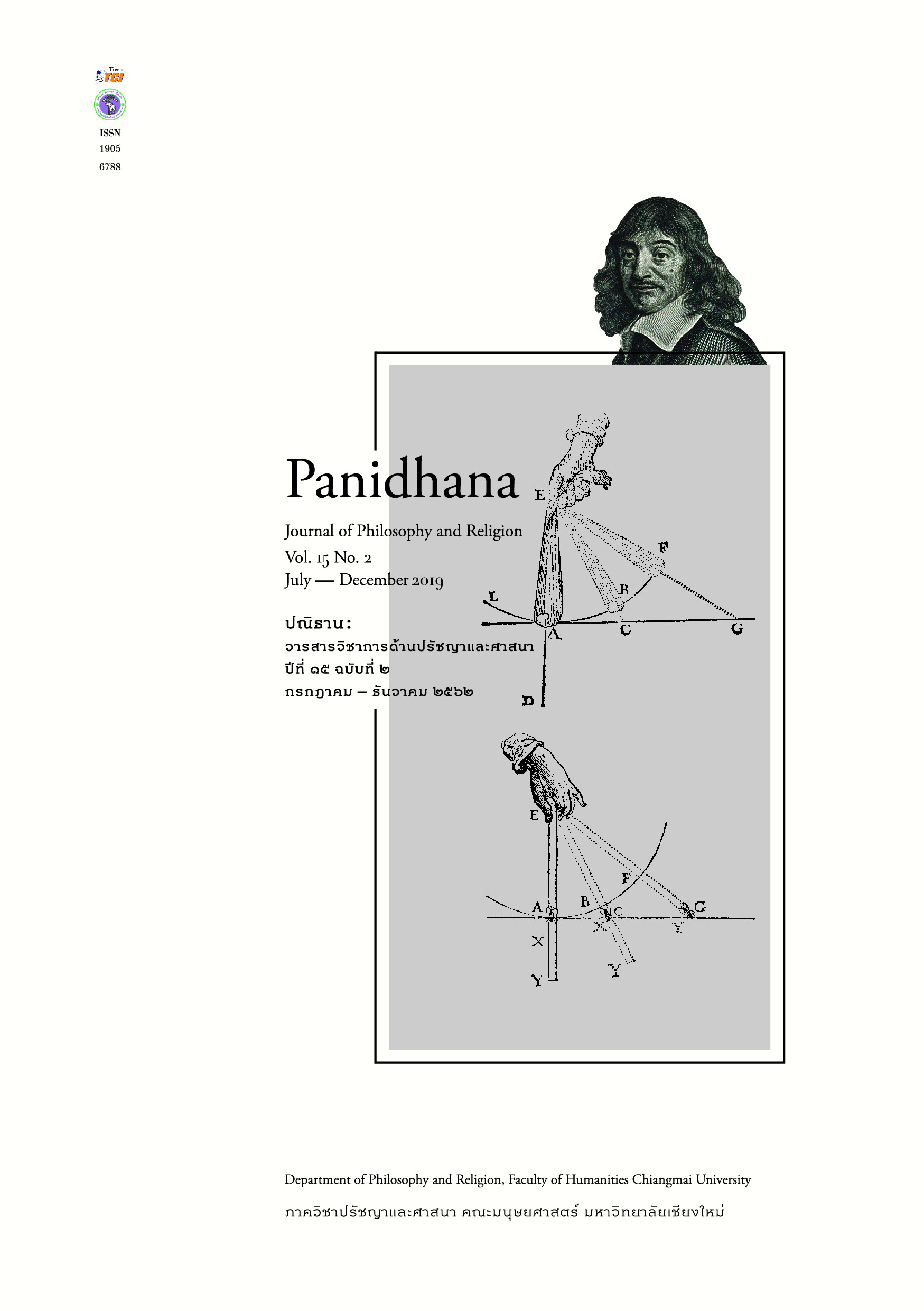The Rational Thought of Freedom as the Way to Unfreedom
คำสำคัญ:
Psychoanalysis, M. Cavell, S. Freud, J. Lear, The Rat Man, World Trade Centre, Terrorismบทคัดย่อ
This paper is a short philosophical reflection as well as textual analysis on Jonathan Lear’s psychoanalytical as well as philosophical account of human freedom in relation to a Freudian Case Study. It attempts to show that many a times the so-called rationality of human being, which tries to ward off any bondage, actually leads to unfreedom. The reflection or thought process a subject proudly uses to argue for her social predicament, in fact, may lead her ultimately deceive herself, the paper argues. Found herself in these conditions, as Marcia Cavell would suggest, the subject might think that she has freedom, for she can account for her own activities, thanks to her rational reflection. But, this reflection may turn out to be a mere excuse or a ‘defense mechanism’ eventually. One illustration of this fact can be found in the Freudian case of ‘the Rat Man’. In relation to this, thus, the paper investigates into Lear’s analysis and then tries to look beyond the possible hypothetical explanation to show that Lear himself does not get rid of the consequence of his own argument.
เอกสารอ้างอิง
Cavell, M. (2006). Becoming a Subject: Reflections in Philosophy and Psychoanalysis. Oxford: Clarendon Press.
Freud, S. (2003). Case Histories II: Book No.9. New Delhi: Shrijee’s Book International.
Heidegger, M. (2012). Basic Writings: Special Indian Edition. London & New York: Routledge.
Lacan, J. (2006). Ecrits: The First Complete Edition I English. New York and London: W. W. Norton & Company.
Lear, J. (2008). Freud: Special Indian Edition. New York and London: Routledge.
Thurschwell, P. (2009). Sigmund Freud: First Indian Print. London and New York: Routledge.
ดาวน์โหลด
เผยแพร่แล้ว
รูปแบบการอ้างอิง
ฉบับ
ประเภทบทความ
สัญญาอนุญาต
เนื้อหาของบทความที่ได้รับการตีพิมพ์ในวารสารปณิธานถือเป็นลิขสิทธิ์ของวารสารปณิธาน ห้ามเผยแพร่ ตัดต่อ แก้ไข หรือนำไปใช้ก่อนได้รับอนุญาต
ผู้สนใจสามารถติดต่อขอเผยแพร่เนื้อหาในวารสารปณิธานได้ที่ panidhana-human@cmu.ac.th







